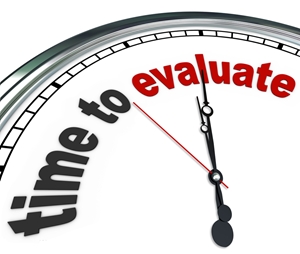
As 2015 comes to an end for business owners and employees, performance review season is just beginning. Traditionally during the last few weeks of December, supervisors and staff members have a sit-down meeting to look back upon the year that was in order to see where things went right, where things went wrong, how to improve and if an increase in salary is warranted.
According to recent polling, however, many businesses are trending away from this end-of-year review ritual, hoping that by doing so, it will save time, energy and resources, thereby increasing productivity. But if you ask workers how they feel about their elimination, you get decidedly mixed reviews.
Approximately 50 percent of employees think it's a bad idea to no longer use the formal performance review system, based on a new survey conducted by management services firm Eagle Hill Consulting.
Majority thought last review went well
Workers' mixed feelings on the matter may stem from their belief that they exceeded expectations this year, thus a formal review would almost assuredly be beneficial – both to their self-worth and what's inside their wallets. Nearly 55 percent indicated that their last review went well and nearly two-thirds – 65 percent – indicated that it accurately depicted what they brought to the company in terms of contributions.
Melissa Jezior, president and CEO of Eagle Hill Consulting, indicated that before business owners put the kibosh on performance reviews, they should first think about what to put in its stead, because workers need feedback – be it good or bad.
"The annual performance system has to be replaced with something," Jezior explained. "That something probably would take the form of formal and informal feedback sessions. This is problematic for companies that lack an open and regular feedback culture."
She added that business owners, when determining whether the formal performance review process is worthwhile, should operate by the age-old phrase of "If it ain't broke, don't fix it."
"Generally, employees feel the system works," Jezior said.
She went on to say by eliminating these evaluations, workers may worry that they'll be "flying blind," not getting a lay of the land in determining where they stand with the company, how to progress or if they're eligible for a bonus.
Only a quarter of employees expect a bonus
Due to economic strictures, bonuses are also going the way of the dinosaur, at least among some businesses. Just 1 in 4 Americans anticipates receiving a holiday bonus this year, according to a separate survey conducted by Princeton Survey Research Associates International. Of these, only 1 in 10 – 12 percent – believe it will come in the form of an increase in salary.
At close to 40 percent, a plurality of workers say higher earnings is what they want in the new year, PSRAI found in its poll commissioned by Bankrate. Meanwhile, almost 1 in 5 indicated that they'd like to have more generous employee benefits, be it greater monetary contributions from their employer or additional coverage options, like employee dental benefits or employee vision benefits.





